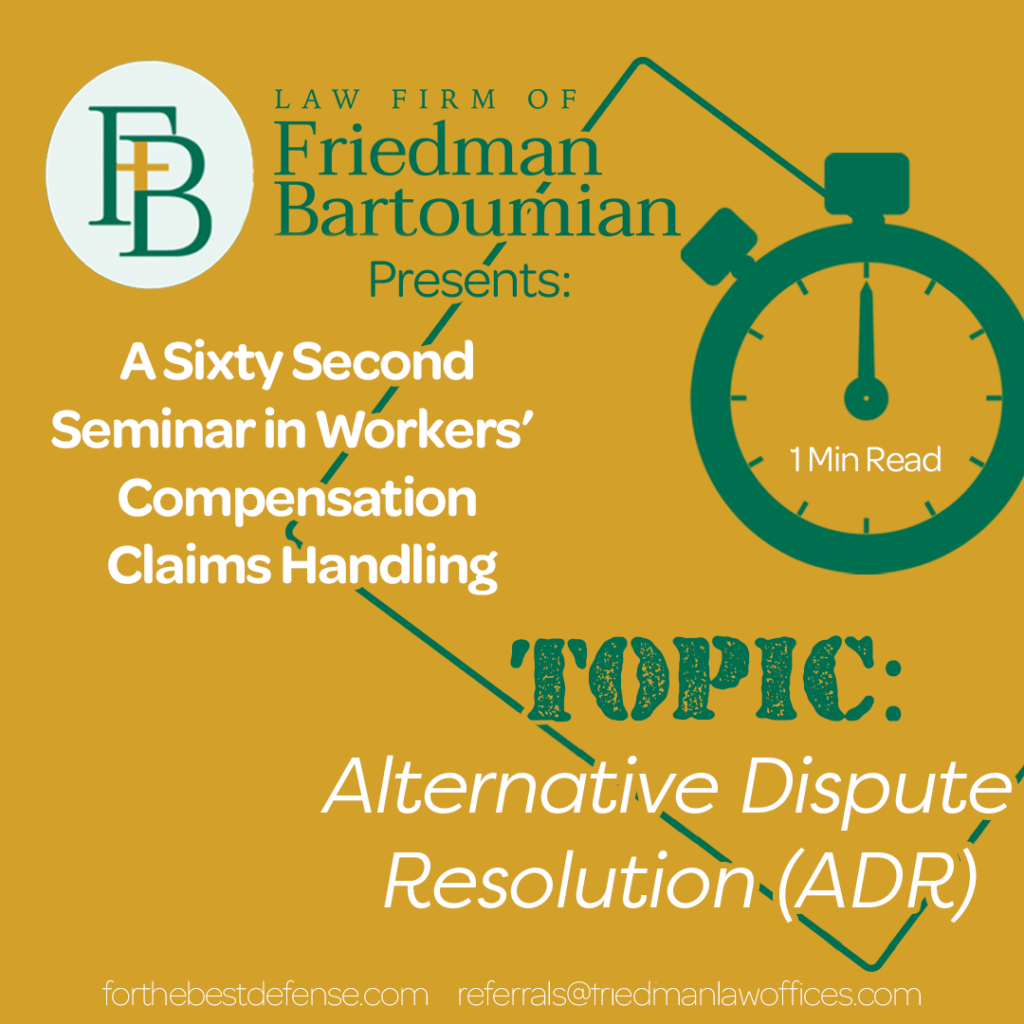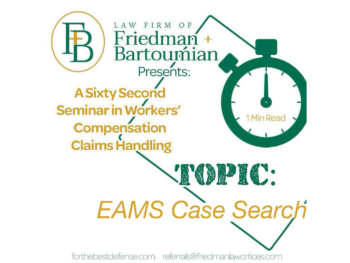
On July 16, 2003, Labor Code § 3201.5 was enacted, establishing an alternative dispute resolution (ADR) process in California’s workers’ compensation system. ADR is also often referred to as a “carve-out” program. The intent of ADR is to bypass WCAB conferences, hearings, and trials to quickly resolve workers’ compensation disputes without the delays and expense typically associated with trying a case in the WCAB system. The ADR process is straightforward: disputed issues are initially discussed and overseen by a neutral ombudsman. If a dispute remains unresolved, the matter progresses to a mediator. If afterwards issues still exist, the final step is to proceed to arbitration. Final arbitration decisions are subject to a standard petition for reconsideration filed at the appeals board.
When ADR was initially implemented under LC § 3201.5, participants were limited to unionized organizations in the construction industry. To this day, LC § 3201.5 remains the governing statute for construction industry ADR. To qualify for this program, an employer and labor union are required to agree beforehand to ADR jurisdiction, followed by ratification in a collective bargaining agreement. Under LC § 3201.5, for construction industry ADR, attorney representation is not allowed until a dispute reaches the arbitration stage.
In addition to the above, a variety of other differences exist between ADR and WCAB procedures, such as each side being able to obtain a medical evaluation from a Qualified Medical Examiner (QME) of its own choice; using private experts to rate the worker’s disability, instead of raters from the DWC Disability Evaluation Unit (DEU); seeking guidance from the WCIRB Policyholder Ombudsman, as opposed to a DWC Information & Assistance (I&A) officer; and using benefit notices different from those published by the DWC.
In 2004, California law was amended to enhance ADR with the enactment of LC § 3201.7, which allows for all labor union employees and their employers to participate in ADR, as opposed to just the construction industry. Therefore, we now have two ADR systems: one for the construction industry and one for everyone else. The system adopted under LC § 3201.7 is known as “labor-management ADR.”
There are some key differences between the two ADR programs. First, unlike in construction industry ADR, attorney representation is allowed at any time in labor-management ADR. In addition, a labor-management ADR agreement must be “separate and apart” from the collective bargaining agreement.
Unfortunately, many applicant’s attorneys do not realize that there are two ADR systems, one which allows legal representation at any time and another which does not. To complicate matters, applicant’s attorneys sometimes do not realize when an injury falls under ADR jurisdiction. As a result, they mistakenly file applications at the Appeals Board and attempt to conduct discovery, resulting in a myriad of problems as the Board has no jurisdiction over the claim.
Importantly, ADR is regularly praised by both labor and management. Statistics show that claims are resolved more swiftly under ADR, producing greater savings for employers. In addition, attorneys appreciate the opportunity to select their own QMEs without restriction. Both sides also enjoy settling ADR cases over the phone without the necessity of spending half a day at the WCAB.
However, there are three caveats we need to warn you about:
- Not every program qualifies for ADR. A wide variety of prerequisites exist calling for a minimum insurance premium before an employer is eligible for ADR (See: LC §§ 3201.5(c)(1) & (4), LC §§ 3201.7(c)(1) thru (4), IC §§ 11656.6 & 11656.7).
- Labor Code § 132a discrimination claims are not subject to ADR. This sometimes creates havoc, because it splits the resolution of an injury claim between ADR (for normal work comp benefits) and litigation at the WCAB (for LC § 132a penalty issues). As for S&W penalty issues, the law allows adjudication under ADR.
- Most importantly, the California Court of Appeals has ruled that death claims are not subject to ADR jurisdiction.
Feel free to contact Friedman + Bartoumian for your ADR needs. We have extensive experience in these highly complicated matters, and are available to answer your questions and concerns!


 Lucky Bucks: A Sixty-Second Seminar in Workers’ Compensation Claims Handling
Lucky Bucks: A Sixty-Second Seminar in Workers’ Compensation Claims Handling
Leave a Reply